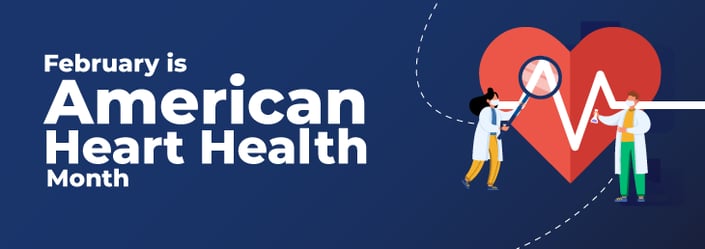Each year, American Heart Health Month is observed in February. According to the World Health Organization (WHO), cardiovascular disease is the world’s number one cause of death.
President Lyndon B. Johnson, among the millions of people in the country who’d had heart attacks, first proclaimed American Heart Health Month in 1964. Since then, US presidents have annually declared February American Heart Health Month. 
When the heart is not function properly, it can lead to a wide range of health problems, including:
- Cardiovascular disease: This includes conditions such as heart attack, stroke, and high blood pressure, which can result in severe disability or even death.
- Reduced physical function: Poor heart health can make it challenging to engage in physical activity and lead to decreased mobility and independence.
- Reduced quality of life: Heart disease can lead to chronic pain, fatigue, and emotional distress, making it difficult to enjoy daily activities and social interactions.
- Increased healthcare costs: Treating heart disease and its complications can be expensive and burden individuals and families financially.
American Heart Health Month reminds you to take care of your heart health every year.
Simple lifestyle changes can go a long way in maintaining a healthy heart. Here are some tips to help you keep your heart healthy:
- Eating a healthy diet: includes consuming plenty of fruits and vegetables, lean protein, and whole grains and limiting processed foods and saturated fats.
- Regular physical activity: Aim for at least 150 minutes of moderate-intensity aerobic activity or 75 minutes of vigorous-intensity aerobic activity per week, or a combination of both.
- Not smoking or quitting smoking: Smoking is a significant risk factor for heart disease, and quitting can greatly reduce that risk.
- Managing stress: Chronic stress can increase blood pressure and heart rate, leading to heart disease. Finding healthy ways to manage stress, such as yoga, meditation, or exercise, can help reduce heart disease risk.
- Monitoring and managing medical conditions: High blood pressure, high cholesterol, and diabetes are all risk factors for heart disease. Regular check-ups and working with a healthcare provider to manage these conditions can help reduce heart disease risk.
It is important to note that these are general guidelines, and it's always best to consult a healthcare provider before making any drastic changes to your lifestyle or starting an exercise program.
Are you interested in celebrating and raising awareness within your organization?
- Offer in-person screenings for your staff
Many health screening services, including mobile screenings, are available for the team to participate in on-site screenings. - Provide resources specific to your region or organization
Find out if there are any other screenings, resources, or opportunities in your area for anyone in your organization to take advantage of. - Participate in a team/organization heart health walk
Come together as a team or an organization to walk together! - Host a catered meal or potluck focused on heart-healthy foods
Bring your team or organization together for lunch- with a focus on heart-healthy foods and the chance for team members to engage with one another outside of a clinical setting. - Dress in Red for National Wear Red Day
Wear red on the First Friday in February to celebrate the occasion or set up your internal spirit day.
Final thoughts
 Taking care of your health all year long is important, but American Heart Health Month is a great reminder to ensure you’re on track. Talk to your doctor about heart health and make sure you’re making healthy choices for a lifetime of heart health.
Taking care of your health all year long is important, but American Heart Health Month is a great reminder to ensure you’re on track. Talk to your doctor about heart health and make sure you’re making healthy choices for a lifetime of heart health. Check out some other resources about Heart Health here.
